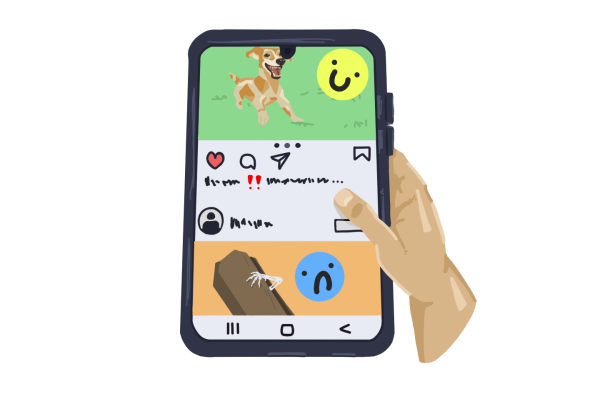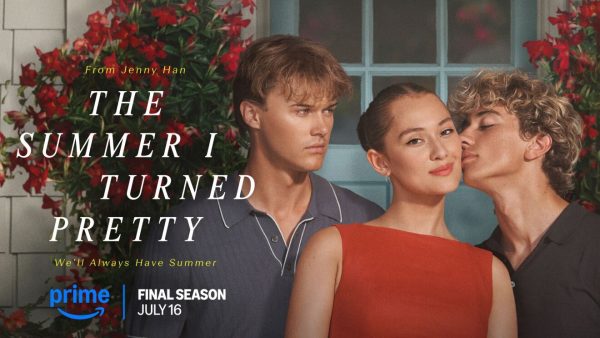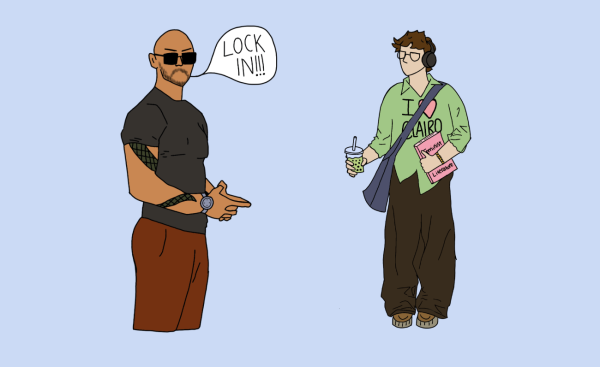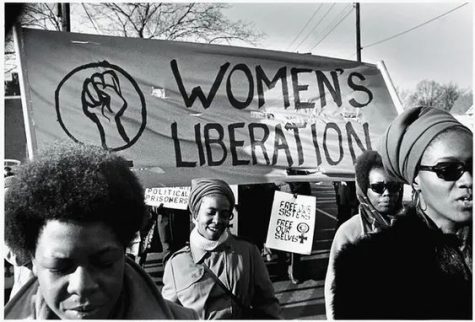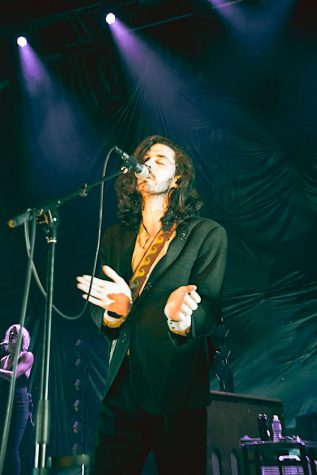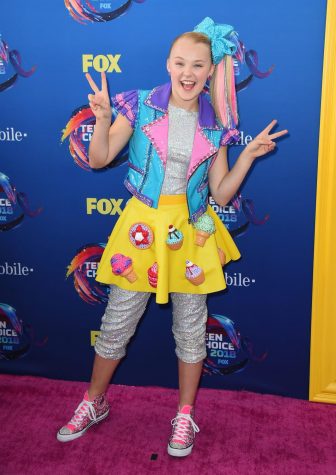The Single Man by Don Zolidis; everything you need to know about FHS’ Theater Program’s latest production

Jumping into the new year, many people have been making the transition from in-person meetings and events to those online. From service projects to theater productions, this is noticeable across the board.
This is especially prevalent in the Fremont High School Theater program, which is having their virtual production of The Single Man, directed by the Head of Theater department, Tanya Misfeldt. Fremont Theater Program’s The Single Man by Don Zolidis will be a spin-off of the commonly known show The Bachelor and will premiere on March 19 through Fremont High School (FHS) on YouTube.
In an interview with Miss Misfeldt herself, we get a scope into FHS Theater’s production of The Single Man and all of the behind the scenes work that went into it.
What is the title of the production? What will it be about?
Miss Misfeldt: We are producing The Single Man by Don Zolidis. It is a murder mystery comedy, that is, a spoof of The Bachelor. So if you like murder mysteries, if you like The Bachelor TV show and the franchises, you’re gonna love this show. It’s hilarious.
So, it’s on the set of a show called The Single Man aka The Bachelor and we have a single man and eight beautiful women, his single ladies, all buying for his attention until… there is a death threat!
And so they have to bring in a world famous detective, a French detective, to see “Can he solve the case before he somebody gets hurt? Will it be love? Or murder?”
It’s so much fun. We’re having a blast recording. I laugh out loud all of the time. It’s really fun.
What was the timeline of the production?
Miss Misfeldt: We started with casting at the end of November. So we did auditions at the end of November and did our casting at the end of November and spent December working on really digging into our characters; thinking about… Who are these people? What do they look like? What are their favorite things? Like, really doing in-depth character study so that they can really dig into their characters.
And then, when they came back in January, we worked on physicalization and we worked on ‘How does your character speak?” and started rehearsing. And then in February, we started filming and we are just about wrapping up filming and putting it all together so that it can be premiered on March 19th.
I wanna also add that we have Stagecraft students doing the designs. So I have students doing all the virtual background designs, students doing the costume designs, doing the props designs, doing the sounds design, doing publicity. Students are doing all of that and students actually came in and helped us pull costumes and props and then the actors all came to pick up their costumes and props from school and are recording on green screens at their house. Lots of work.
What was the process like of producing This Single Man? Was it difficult?
Ms. Misfeldt: It is really different. Normally, theater is live. You get everything ready and then the audience comes and you do it once, you do it twice, and you do it three times. Whereas, for this, we had to have all of the costumes and all the props and all the virtual backgrounds done before we could even start filming.
And so it’s been a lot of scheduling, a lot of planning, a lot of… you know, technical troubleshooting. Like everytime… everytime we get ready to record, we have to make sure; Does your mic work? Does your green screen work? Is your lighting ok? Can we hear you?
So it’s been a really different experience and really fun; and to explore some different skills and some different ways of doing things. It’s more like putting together a movie in that sense, which… is different and really fun!
How was the process of transitioning onto performing virtually? What were things that went well and where was there room for improvement?
Ms. Misfeldt: Yes. So we started with getting the actors the technical pieces back in September. We ordered green screens for students whose computers don’t have the ability to do virtual backgrounds. We ordered ring lights, we ordered microphones, we ordered head-sets, we ordered all of these different things. And then again, [we] had actors come and pick them up and now have all of this technical stuff at home and so there is a bit of a learning curve; [like]
how do I adjust my audio settings? How do I adjust my sound settings? How do I make it so the greenscreen, the virtual background is on the right place?”
That has been, I think, the shift. And then, the other thing that’s been really different is that when you’re in a theater, your audience is thirty feet away. They can’t really see the nuances of your facial expression as much because it’s about bigger movements. It’s about entrances and exits and blocking whereas on camera, you’re like, “Hello, here is my face.” So it’s a lot more thinking about what are we doing with our facial expressions, and what are we doing with our physicality to bring these characters to life in a way that we don’t necessarily do to the same extent on stage.
What were things that were affected in the production process because of the transition from in-person to online? How did you make accommodations for change?
Ms. Misfeldt: I think the biggest thing is what I talked about and then the virtual backgrounds. Instead of building a set, we are doing digital designs which are really interesting and really cool.
The students have been really amazing at taking feedback and saying, “Oh, I like that, but can you shift this,” and then do a lot of revision, which has been really great. And I think the other big thing has been not being able to interact with your co-actors. Like, if I’m supposed to be talking to you do I look straight ahead at my camera, or do I figure out, “Wait, are they on my left or my right? Wait, on camera, do I turn and look at them? If I have to high-five somebody, how do I high-five them through Zoom? Do I do this? Do I do this?”
So just like, thinking about how does somebody, how does somebody punch somebody in Zoom? Right? How do they dance together? How do we do the tango?
How have the performers been feeling about the productions? How have they been feeling about the transition from in-person to online?
Ms. Misfeldt: Well. My actors by nature are very social people. And so I think that being remote and not being able to be with their community has been really hard on a lot of them. But I think that they’re rising to the challenge of virtual productions. I think they are having a lot of fun. They are really putting a hundred percent of their efforts into this; the characterization is phenomenal.
Like I said, I laugh all the time because they’re doing their job and being so, so good at it. And, I think that they are really happy that we are still doing theater, it’s just not the way that we’ve done theater before. It might not look the way that it has looked in the past. But we’re still doing theater, we’re still creating, we’re still being that community and so I think they’re really glad to do theater whatever it looks like.
But, of course, they would rather be back, on a stage, with an audience, But, we’re making the best of it and I think we’re having a lot of fun. And we’re really really proud of what we’ve put together and I cannot wait for you all to see it.
What are some things the people can expect when they watch The Single Man?
Ms. Misfeldt: Ooh, so lots of comedy, lots of great characters, lots of amazing virtual backgrounds, rose petal death threats, murder dioramas, lots of comedy, lots of suspense and just a whole lot of fun.



